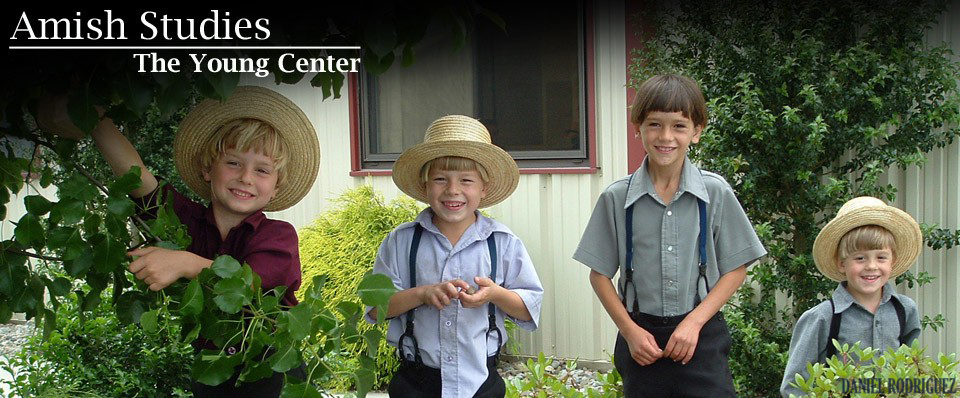Health
Health care practices vary considerably across Amish communities and from family to family. Many Amish use modern medical services, but others turn to alternative forms of treatment. They do not cite biblical injunctions against modern health care or the latest medicines, but they do believe that God is the ultimate healer.
Compared to the non-Amish, Amish people are less likely to seek medical attention for minor aches or illnesses and more apt to use folk remedies and drink herbal teas. Although they do not object to surgery or other forms of high-tech treatment, they are less inclined to use heroic life-saving interventions, and are reticent to intervene when their elderly face terminal illness. They are, in short, more willing to yield to the mysteries of divine providence.
In addition to home remedies, members often seek other forms of unorthodox medical treatment. Their search for natural healing often leads them to vitamins, homeopathic remedies, health foods, reflexologists, and chiropractors. Some seek the services of special clinics—in Mexico and elsewhere—that offer treatments, especially for cancer, that are not authorized in the United States. Several Amish entrepreneurs operate health food stores that cater to the Amish as well as to their non-Amish neighbors. Numerous outsiders who market homeopathic treatments and questionable cure-all products seek to entice Amish customers.
Amish health habits are shaped by many cultural factors—conservative rural values, a preference for natural antidotes, a lack of information, a sense of awkwardness in high-tech settings, difficulties accessing health care, as well as a willingness to suffer and lean on the providence of God.
The Clinic for Special Children, in Strasburg, Pennsylvania, identifies inherited diseases and treats children who present symptoms. The clinic’s efforts have boosted health care within Amish communities and also advanced the study of genetic science.
DDC Clinic–Center for Special Needs Children in Middlefield, Ohio, provides treatment, research, and educational services to Amish and non-Amish children with inherited or metabolic disorders. The clinic, founded in 2002, is patterned after the Clinic for Special Children. Dr. Heng Wang is the medical director.
Alan R. Shuldiner, M.D., a nationally recognized endocrinologist and diabetes expert, founded the University of Maryland Amish Research Clinic in 1995 in eastern Pennsylvania. Dr. Shuldiner’s research team has conducted more than a dozen studies with the Old Order Amish, looking for genes that may cause common diseases such as diabetes, hypertension, osteoporosis, and heart disease. More than 6,000 Amish people have participated in the research, which has been reported in more than 50 professional scientific publications.
Additional information
- See chapter 18, “Health and Healing,” in Donald B. Kraybill, Karen M. Johnson-Weiner, and Steven M. Nolt, The Amish (Baltimore: Johns Hopkins University Press, 2013).
- See chapter 7, “Health along the Life Cycle,” in Charles E. Hurst and David L. McConnell, An Amish Paradox: Diversity and Change in the World’s Largest Amish Community (Baltimore: Johns Hopkins University Press, 2010).
- Harold E. Cross and Andrew H. Crosby, “Amish Contributions to Medical Genetics,” Mennonite Quarterly Review 82 (July 2008): 449-67.
